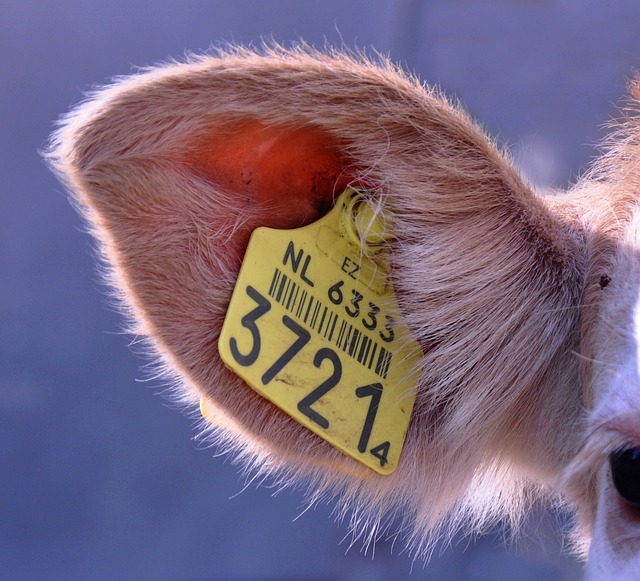In Sheffield, England, individuals dealing with skin tags have various safe and effective treatment options available, including cryotherapy for quick results, surgical removal for precise excision, electrosurgery/electrocoagulation for non-surgical removal, and laser treatment for addressing multiple tags at once. These treatments are provided by certified professionals at Sheffield Skin Tag Removal clinics, ensuring patient satisfaction and safety. After the procedure, proper post-removal care is essential to prevent infection, minimize scarring, and support long-term skin health. This includes following a regimen of gentle cleaning, drying, and antibiotic ointment application as directed, possibly with a clean bandage for added protection. For those seeking to prevent future skin tags, maintaining a healthy lifestyle, engaging in regular skin examinations, using sun protection, and adopting a balanced diet are recommended. Additionally, stress management through exercise or relaxation can support overall skin health. Regular consultations with a dermatologist for professional skin assessments, especially if one has a history of skin growths, are also crucial for maintaining healthy skin in Sheffield.
Exploring the common concerns of Sheffield residents, this comprehensive guide delves into the nature and causes of unwanted skin growths, commonly known as skin tags. Understanding them is the first step in addressing these benign yet sometimes bothersome entities. We’ll navigate through safe and effective removal methods tailored for Sheffield’s population, ensuring residents receive the best care options available. Additionally, we’ll provide essential post-removal care advice and prevention strategies to maintain healthy skin. Whether you’re seeking professional medical assistance or considering home remedies, this article is your go-to resource for Sheffield skin tag removal and management.
- Understanding Skin Tags: Identification and Causes in Sheffield's Population
- Safe and Effective Removal Methods for Skin Tag Elimination in Sheffield
- Post-Removal Care and Prevention Strategies to Keep Your Skin Healthy in Sheffield
Understanding Skin Tags: Identification and Causes in Sheffield's Population

In Sheffield, a city in the heart of England, residents often seek solutions for benign skin growths known as skin tags. These small, harmless protrusions are commonly found on the skin and can be a source of cosmetic concern or even discomfort if they become irritated by clothing or jewelry. Understanding what skin tags are is the first step in addressing them effectively. Skin tags, also known as acrochordons, typically present as soft, pedunculated (on a stalk), or sessile (flatter) growths. They can appear on any part of the body but are most frequently found on the neck, armpits, groin folds, and under the breasts.
The exact cause of skin tags is not entirely understood, though they are known to be more common in individuals with conditions like type 2 diabetes, obesity, and hormonal imbalances. In Sheffield’s population, factors such as skin friction, aging, and even genetics can contribute to their development. It’s also worth mentioning that skin tags are often associated with the human papillomavirus (HPV), particularly HPV type 6 and 11. The prevalence of these growths can be influenced by lifestyle choices, which may explain their frequency in urban environments like Sheffield. For those in the city seeking Sheffield skin tag removal options, it’s advisable to consult with healthcare professionals who can provide safe and effective treatment tailored to individual needs. Whether through surgical excision, cryotherapy, or other methods, removing unwanted skin tags can enhance both comfort and confidence for residents of Sheffield.
Safe and Effective Removal Methods for Skin Tag Elimination in Sheffield

In Sheffield, individuals seeking effective and safe removal of unwanted skin growths such as skin tags can explore a variety of treatment options that are both medically sound and widely accessible. One of the most common and non-invasive methods is cryotherapy, which involves freezing the skin tag with liquid nitrogen to cause it to fall off on its own. This method is popular for its simplicity and quick results, making it a favored choice for many residents in Sheffield. Another option is surgical removal, typically performed by a dermatologist or general practitioner under local anesthesia. This procedure ensures precise excision of the tag with minimal discomfort and optimal cosmetic outcomes. Both methods are readily available in Sheffield Skin Tag Removal clinics, where certified professionals can assess each individual’s condition and recommend the most suitable treatment plan based on the size, location, and number of skin tags.
For those preferring non-surgical routes, electrosurgery or electrocoagulation is another viable option in Sheffield Skin Tag Removal services. This method utilizes a low-voltage electric current to cauterize and remove the skin tag without the need for stitches. Laser treatment is yet another alternative, which targets and destroys the growth using concentrated beams of light. This approach is often favored for its precision and ability to treat multiple tags during a single session. All these methods are performed under sterile conditions by trained medical professionals who prioritize patient safety and satisfaction. It’s advisable to consult with a healthcare provider in Sheffield to determine the most appropriate treatment option based on individual health needs and personal preferences.
Post-Removal Care and Prevention Strategies to Keep Your Skin Healthy in Sheffield

In Sheffield, where the diverse population seeks various dermatological services, including Sheffield skin tag removal, post-removal care is paramount for healthy skin recovery. Following a procedure to remove unwanted skin growths, such as skin tags, it’s essential to adhere to a careful regimen to promote healing and prevent infection. The initial days post-removal are critical; keep the treated area clean by gently washing with soap and water, and drying thoroughly. Applying an antibiotic ointment as directed by your healthcare provider can aid in protecting the area from bacterial growth. Additionally, covering the removal site with a clean, non-stick bandage can help minimize the risk of infection and reduce the potential for scarring.
For effective prevention strategies to maintain skin health and avoid future skin tag formations in Sheffield’s diverse climates, maintaining a healthy lifestyle is key. Regularly examining your skin for any new or changing growths should be part of your skincare routine. Protecting yourself from sun damage by using broad-spectrum sunscreen and wearing protective clothing can also reduce the risk of certain types of skin growths. Maintaining a balanced diet rich in vitamins and minerals, staying hydrated, and managing stress through exercise or relaxation techniques further support overall skin health. Regular visits to a dermatologist for professional skin checks are recommended, especially if you have a history of skin growths or are concerned about any changes in your skin. By combining diligent post-removal care with preventative measures, residents of Sheffield can ensure their skin remains healthy and free from unwanted growths.
In conclusion, addressing unwanted skin growths such as skin tags through understanding their nature and causes, as explored in “Understanding Skin Tags: Identification and Causes in Sheffield’s Population,” is a crucial first step. The subsequent sections, “Safe and Effective Removal Methods for Skin Tag Elimination in Sheffield” and “Post-Removal Care and Prevention Strategies to Keep Your Skin Healthy in Sheffield,” provide comprehensive guidance on the best practices for removal and maintaining skin health post-procedure. For residents of Sheffield seeking professional and secure treatment options, Sheffield Skin Tag Removal stands as a reliable resource, ensuring that individuals receive the care they need. By adhering to the outlined prevention strategies, one can effectively minimize the occurrence of new skin tags, promoting overall skin well-being.
